Author: yyy, Web3Caff Chinese researcher Source: X, @y_cryptoanalyst
Focusing on the Rollup track, the competition between Arbitrum and Optimism is indeed fierce. Optimism is expanding horizontally under the banner of its OP Stack, while Arbitrum is pioneering L3 innovation vertically through Arbitrum Orbit.
The Arbitrum team personally participated in the first L3 based on Arbitrum Orbit - XAI, officially declaring war on Optimism.
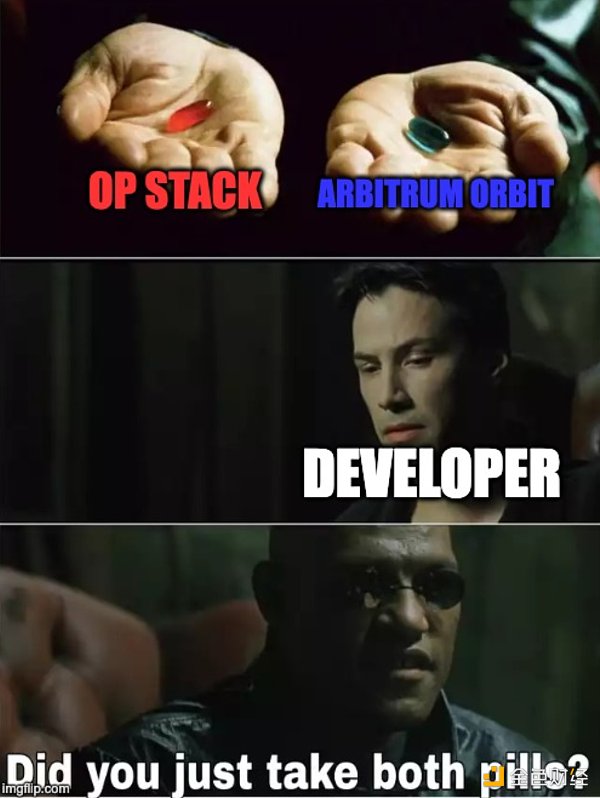
p>
In my opinion, the launch of XAI has an important strategic position for Arbitrum and is a positive declaration of war against OP. OP used its powerful B-side resources to promote Binance, Coinbase and others to build L2 chains based on their OP Stack, and drastically expanded the L2 ecological territory; at the time, Arbitrum seemed unknown and had not seen much action. The rapid launch of XAI feels like no coincidence when OP development is in full swing.
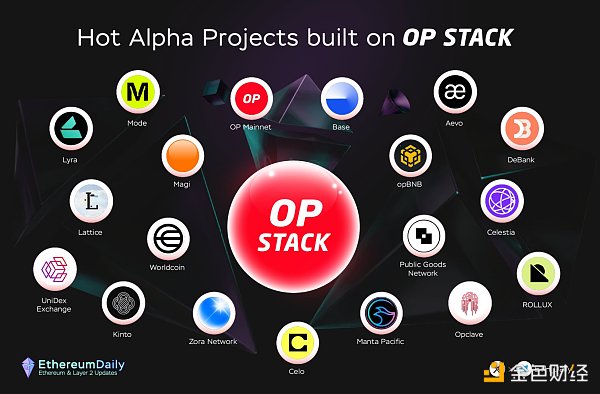
p>
Arbitrum Orbit
Before talking about XAI, we have to talk about Arbitrum Orbit.
Arbitrum Orbit is a universal modular L3 stack that allows developers to build dedicated L3 chains based on it. Transactions on L3 will go through Arbitrum L2 (Arbitrum One or Nova) for settlement. XAI is an L3 chain built based on Arbitrum Orbit and focused on game scenarios.
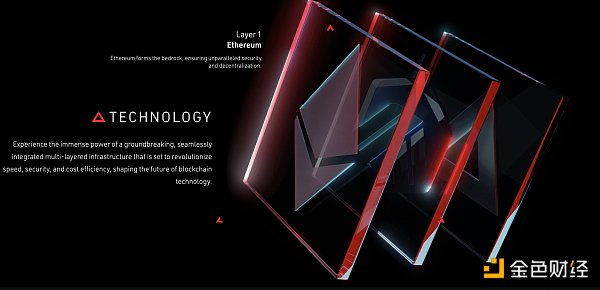
p>
Arbitrum Nova vs. XAI
Nova is a general-purpose L2 that focuses on game scenarios. Why launch XAI when it can meet the needs of game scenarios? The reason is simple: compared to the positioning of the Nova game public chain, XAI, as a game-specific L3, can achieve higher performance and has dedicated computing and storage resources.
This makes resource-intensive use cases possible on the chain, such as computationally intensive AI models. XAI will natively benefit from Arbitrum’s technology stack: Nitro+ BOLD+ Stylus.
Nitro is an upgrade of One's technology stack. The core of Geth, the mainstream Ethereum client, is directly compiled through the base layer of the client software, thereby achieving higher Ethereum compatibility. The difference between Arbitrum Nitro/One/Nova has been discussed separately before, so I won’t go into details here.
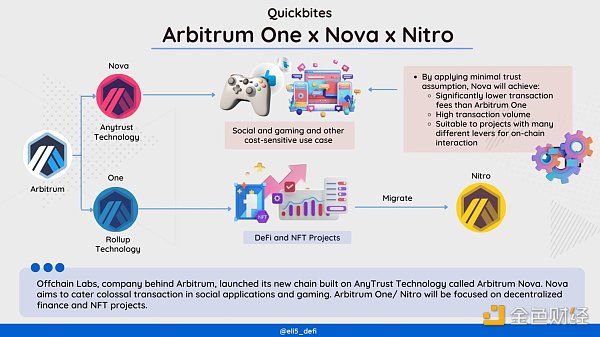
p>
BOLD
BOLD is a permissionless verification mechanism proposed by the Arbitrum team to minimize settlement status Delay. For optimistic rollups, there is a one-week challenge period, and users have to wait for a week from L2 to L1.
If the verifier finds a problem with the submitted L2 transaction during the challenge period, he can initiate a challenge. The challenge here has two questions: 1. Who has the authority to challenge? 2. Why can’t anyone challenge it?
The current fraud proof challenge mechanism is not permissionless, and all have specific roles acting as challengers. If the challenge is permissionless, a malicious challenger can launch a DDOS attack without allowing the settlement status to be confirmed. By introducing the BOLD mechanism, on the one hand, verification can be achieved without permission, which is more in line with the concept of blockchain decentralization; on the other hand, minimization can be achieved Delay in settlement status. BOLD allows a single honest validator to win in a dispute against any number of opponents on Ethereum, thereby rendering DDOS attacks ineffective.
Stylus
Stylus is an open source SDK developed by Arbitrum that supports building applications in multiple languages. This is a product that implements EVM+ compatibility. In short, developers can build applications on Arbitrum using both traditional Solidity languages and WASM-compatible languages such as Rust, C, and C++.
In addition, Stylus makes the execution of Dapps more efficient, significantly reducing gas costs. Stylus is not limited to supporting Rust, C and C++, such as Move, Sway, Cairo and Go, etc. Just imagine, in the future, dApps on Aptos/Fuel/StarkNet can be migrated to Arbitrum with one click. One-click chain modification of the L3 chain can even be achieved through Arbitrum Orbit.
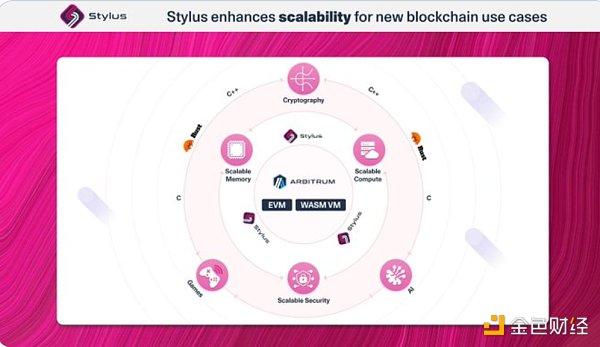
p>
What’s more interesting is that BOLD and Stylus are common modular components; developers can launch L3 for specific use cases based on Arbitrum Orbit and can natively integrate BOLD and Stylus; also You can vote to integrate the above modular components after L3 is launched and running smoothly through decentralized DAO governance.
XAI has fired the first shot in the Arbitrum L2 defense battle, and this battle with Optimism may have just begun. above.
 JinseFinance
JinseFinance
 JinseFinance
JinseFinance JinseFinance
JinseFinance Bernice
Bernice Kikyo
Kikyo JinseFinance
JinseFinance Kikyo
Kikyo Beincrypto
Beincrypto Coindesk
Coindesk Cointelegraph
Cointelegraph Bitcoinist
Bitcoinist